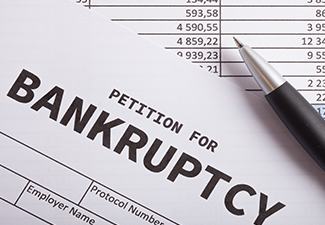Preparing for Bankruptcy
Oct. 26, 2022
 Bankruptcy is a scary word, invoking visions of losing everything and having to start over in life with nothing, but that is almost never the case.
Bankruptcy is a scary word, invoking visions of losing everything and having to start over in life with nothing, but that is almost never the case.
When debts overwhelm you or you fall on hard times financially and cannot continue paying your credit cards and other unsecured debt obligations, filing for bankruptcy can provide you with a fresh start and relief from debts and bill collectors who are constantly contacting you to get you to pay up.
Bankruptcy in Canada is governed by the Bankruptcy and Insolvency Act (BIA), which was enacted to protect “honest but unfortunate debtors.” A bankruptcy generally involves selling off assets to pay creditors, at least partially, but each province has the legislative power to protect certain assets from seizure during bankruptcy, at least up to a specified equity level.
If debts and financial hard times are overwhelming you in or around Toronto, Ontario, bankruptcy may represent your best option to start again in life. If you need a fresh financial start, contact Matthew R Harris Law P.C. We will consult with you on the circumstances causing your financial stress and advise you on your legal options going forward, including what you need to do to prepare for a bankruptcy filing.
Matthew R Harris Law P.C. also proudly serves clients in Hamilton, London, and Ottawa.
What to Do to Prepare for Bankruptcy
If bankruptcy looms as your best and only legal option to put debts behind you to get a fresh start, the first thing you need to do is examine your spending habits and obligations. You may have subscriptions to various organizations, such as streaming services, magazine subscriptions, or other providers of optional services that you can cancel.
You should also reconsider your lifestyle. If you eat out frequently or take costly weekend getaways, you may have to rule out those options. Get your spending down to the minimum necessary to survive. It may not equate to how you wish to live your life, but it can both reveal your financial reality and also help you calculate your obligations if you file for bankruptcy.
The BIA requires a bankrupt filer to make “surplus income payments” depending on cash in and cash out. Surplus income is the amount of income a person who declares bankruptcy has that is over and above what they need to maintain a reasonable standard of living.
What Not to Do in Preparing for Bankruptcy
If you find yourself juggling income and paying one creditor this month and another the next month, while paying any of them off seems out of reach, you need to take a sober look at your situation. Likewise, if you try to pay one credit card to keep it active so you can keep using it, while you alternate payments to other creditors just to stay “afloat” in the eyes of those creditors, you’re playing a losing game.
Don’t selectively pay some creditors and not others or alternate whom you are paying each month. It’s a game you cannot win, and it just delays the inevitability of facing up to the need for filing bankruptcy. It also does nothing to protect your assets when the time comes to actually file for bankruptcy.
What’s more, don’t tap into retirement funds to pay creditors so they’ll quit calling you, even if only temporarily. Your retirement funds are meant just for that – retirement. Don’t use these funds as a delaying tactic.
Exemptions from retirement account vulnerability vary province by province, but you don’t want to tap into these accounts to pay debts that may ultimately be discharged through a bankruptcy filing. Generally speaking, the BIA allows funds contributed to retirement accounts more than 12 months before filing to be exempted.
During your pre-bankruptcy period, you also need to avoid applying for new credit cards or debt obligations. While this may give you some temporary access to new funding, it also can be viewed, once bankruptcy begins, as an attempt to “cheat” your way out of an inevitable insolvency filing.
What you absolutely want to avoid in preparing for bankruptcy is to try hiding or transferring assets. For instance, you may try “selling” a vehicle to a family member or friend with the agreement that you will get it back after your bankruptcy is discharged, but this can be considered bankruptcy fraud with serious consequences.
How Legal Counsel Can Help
Every person and every family that faces overwhelming debt has unique circumstances that led to the crisis and unique financial situations that need to be factored into their bankruptcy. You may be able to avoid bankruptcy through refinancing or debt reorganization, but the first step is to consult with a lawyer experienced in and knowledgeable about bankruptcy regulations and exemptions in the province where you reside.
If you are drowning in debt in Toronto, Hamilton, London, or Ottawa, contact Matthew R Harris Law P.C. to review your situation and advise you of your best legal options going forward.
